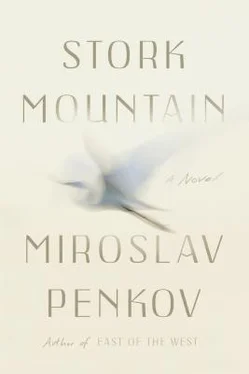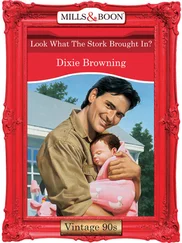“They buried Attila’s coffin in the mountain,” Grandpa says. “Below the stones among which danced the maenads.”
“What happened to Attila’s Huns?” I ask. My fingers clasp the table tighter.
Death has tricked them once before, but now it’s they who have Him cheated. Goddess , they cry, we’ve tasted sun and birdsong once again. Don’t give us back to Veles!
“She pitied them the way a mother pities,” Grandpa says. “But even a loving mother holds no cure for death.”
I’ll let them go, said the nether lord when Lada begged him. But in their place, you’ll have to stay with me.
“She turned Attila’s Huns to birds of white plume,” Grandpa says.
“Like eagles?”
“Sure. Why not. Or maybe, more like storks. And then the maenads pulled her limb from limb so she might join her uncle in the dark.”
“What happened to the maenads, then?”
“Well. What do you think ought to happen?”
“She turned them into birds as well.”
“Why not. She is a goddess after all.”
“Black birds. Like storks.”
“Sounds good to me. And then each spring,” he says, “the netherworld is opened so Lada may ascend. And after her, the stork flocks follow.”
“Wherever trees and flowers bloom.”
“But in their flight,” he says, “they always come back to the mountain. To that one place where Attila rests.”
“And no one knows all this?” I say. “No one remembers?”
“Except maybe the storks, you know. And maybe the mountain.”
“And you and I,” I say.
“And you and I.”
The tiny flame of the candle dances. My parents are fighting once again. We must get out of this town, my father says. Go where exactly? asks my mother. But Grandpa and I no longer hear their fight. Eyes closed, we dream. And who’s to say what happens when our eyes flick open? And who’s to say we’re not still there, around that kitchen table, dreaming?
It is important to stress that this story is a fiction and that certain locations (Klisura — not to be confused with the historical town of the same name — and Kostitsa and Byal Kamak), certain characters (most notably Captain Kosta), and certain legends (most notably those of the goddess Lada and Attila) are also fictional.
I have attempted to remain truthful in my portrayal of the rituals and mysteries of the nestinari . Mihail Arnaudov’s Ochertsi po balgarskiya folklor was especially useful, as were my visits to the villages of Balgari and Kosti, the last two Bulgarian villages where the nestinari still dance. The volumes in Dimitar Marinov’s series Zhiva Starina were particularly helpful in my study of the kalushari ( călușari ).
I am deeply indebted to:
Emily Bell.
Nicole Aragi. Duvall Osteen.
Devon Mazzone, Amber Hoover, Abby Kagan, Scott Auerbach, Brian Gittis, and everyone at FSG for their continued support.
David Holdeman, Jack Peters, Diana Holt, Kevin Yanowski. Herbert Holl and Meredith Buie. The University of North Texas Institute for the Advancement of the Arts. My friends at UNT, colleagues and students alike.
Michael Ondaatje, for his kindness, wisdom, and generosity.
Jill Morrison and the entire staff of the Rolex Mentor and Protégé Arts Initiative.
Sorche Fairbank. Carole Welch. Lisa Silverman. Kyle Minor. Raina Joines.
Boris Nikolaev. Hristo Stankushev. Ivan Chernev.
Isihia. Most of this book was written with their musical composition Ipostas playing in the background.
My wife, for her patience and encouragement.
My parents, for their love and support.
Thank you, kind reader, for reading.

Miroslav Penkov was born in 1982 in Bulgaria. He moved to the United States in 2001 and completed an MFA in creative writing at the University of Arkansas. His stories have won the 2012 BBC International Short Story Award and The Southern Review ’s Eudora Welty Prize and have appeared in A Public Space, Granta, One Story, The Best American Short Stories 2008, The PEN / O. Henry Prize Stories 2012 , and The Best American Nonrequired Reading 2013 . Published in more than a dozen countries, East of the West was a finalist for the 2012 William Saroyan International Prize for Writing and the Steven Turner Award for Best Work of First Fiction from the Texas Institute of Letters. In 2014–2015, Penkov was mentored by Michael Ondaatje as part of the Rolex Mentor and Protégé Arts Initiative. He teaches creative writing at the University of North Texas, where he is the editor-in-chief of The American Literary Review . You can sign up for email updates here.












